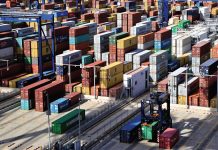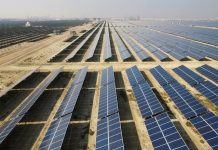ISLAMABAD: Being a developing country, Pakistan is undergoing industrialisation and urbanisation, but that is also increasing energy consumption and thus carbon emissions.
“Large-scale manufacturing such as cement, textile and power generation are among the major contributors to carbon emissions in the country,” said Waseem Ahmed, the Chief Executive Officer of Islamic Relief Worldwide, a humanitarian and development agency.
Talking to WealthPK, he said though the industrial sector was an important component of modern economies, it contributes significantly to global emissions as well.
“Over 80% of all industrial emissions come from major industries like cement, iron and steel, oil and gas, chemicals, and mining. They make up 6.5% of Pakistan’s total CO2 emissions,” he pointed out.
He said that a shift towards low-carbon fuels and energy efficiency improvements is necessary to reduce emissions.
“To achieve decarbonisation in the industrial sector, a comprehensive approach is needed. Transformation towards a low-carbon future demands a socio-technical transition that involves several crucial elements,” he stressed.
Waseem Ahmed said climate change is humanity’s biggest challenge at present, and Pakistan is at the forefront of bearing the brunt of this phenomenon. He said the devastating floods of 2022 left hundreds of thousands of families homeless, affecting one-third of the country’s landmass.
Waseem Ahmed said Pakistan should embark on a robust plan to deliver on its commitments towards reducing greenhouse gas emissions.
Talking about the barriers to decarbonisation in Pakistan, Muhammad Arif Goheer, Head of Agriculture, Forestry and Land Use Section at Global Change Impact Studies Centre, Ministry of Climate Change, said Pakistan faces liquidity crunch to launch sector-wide transition towards a greener industry through investments in renewable energy and energy efficiency efforts. “Pakistan suffers from weak enforcement of environmental laws and a lack of awareness about environmental pollution. Pakistan still lags behind in efforts to tap renewable energy resources and achieve energy efficiency.”
He told WealthPK that given the country’s vulnerability to climate change, allocation of huge financial resources is needed to embark upon the capital-intensive transition to decarbonise the economy. However, he said Pakistan needed to have access to enhanced international climate finance to help mitigate climate change effects.
Arif Goheer, however, pointed out that Pakistan has already identified market and non-market-based approaches to help diversify the funding sources through launch of Nature Performance Bonds, Green/Blue Bonds, Carbon Pricing Instruments, etc.
He called for encouraging the private sector to play a role in developing and implementing the nature-based solutions across sectors to help enhance Pakistan’s resilience to climate change and decarbonise the economy. –INP






